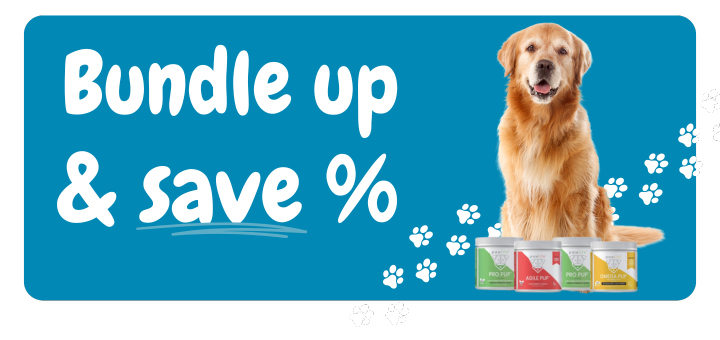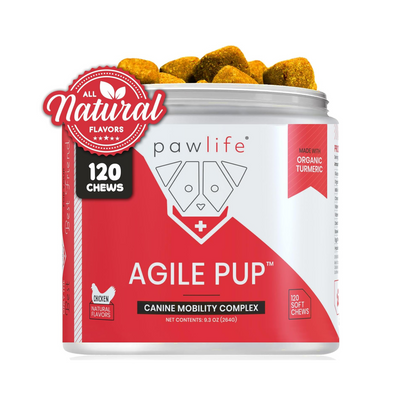Why Supplements Matter for Your Pet’s Health
Just like humans, pets benefit from balanced nutrition, regular exercise, and added nutritional support when needed. While premium pet foods provide a solid foundation, supplements can help fill nutritional gaps, support specific body systems, and improve overall quality of life. From maintaining shiny coats and flexible joints to promoting better digestion and stronger immunity, the right supplements can make a remarkable difference in your pet’s well-being. At Pawlife Pets, every formula is designed to help your dog thrive from nose to tail.
Understanding Your Dog’s Nutritional Needs
Many pet parents wonder whether their dog truly needs supplements. The answer depends on factors like age, breed, diet, and lifestyle. Dogs on high-quality, vet-approved food may already receive most of their nutrients, while those eating homemade or less balanced meals could lack essential vitamins and minerals. Common deficiencies can affect coat health, joint mobility, energy levels, and digestion. Regular checkups and consultations with your veterinarian can reveal any deficiencies and guide you toward safe, effective supplementation.
For example, dogs with sensitive stomachs or frequent digestive issues may benefit from probiotics and digestive aids. Active dogs or seniors can gain joint and muscle support from glucosamine, chondroitin, or omega fatty acids. Tailoring supplements to your dog’s needs ensures that they receive the right support without overloading their system.
Popular Supplement Types and Their Benefits
Joint and Mobility Support
As dogs age or lead active lifestyles, joint strain and stiffness can become common concerns. Supplements rich in glucosamine, MSM, and chondroitin help maintain cartilage integrity and reduce inflammation, supporting long-term mobility. For comprehensive care, consider Multi Pup 5-in-1 Multivitamin, which offers joint support alongside a full range of essential nutrients.
Healthy Skin and Coat
Shiny coats and smooth skin are signs of good nutrition and internal balance. Fatty acid supplements, especially those with omega-3 and omega-6, can reduce shedding, dryness, and irritation while promoting a glossy coat. Omega Pup delivers these benefits through premium fish oil and natural ingredients that nourish your pet’s skin from the inside out.
Digestive and Gut Health
Digestive wellness plays a key role in your dog’s immunity and comfort. When gut bacteria are unbalanced, it can lead to bloating, gas, or irregular stools. Probiotic and prebiotic supplements promote healthy microbiota and nutrient absorption. Pawlife’s Pro Pup Pumpkin Flavor combines probiotics, prebiotics, and enzymes for balanced digestion and stronger immunity. For daily digestive maintenance, visit our Digestion Collection for more options.
Immunity and Whole-Body Wellness
Supplements packed with antioxidants, vitamins, and minerals can strengthen the immune system and fight free radicals that cause premature aging. Multi Pup 5-in-1 covers everything from joint and coat health to immune and digestive support, making it an ideal daily addition for well-rounded care.
Behavioral and Cognitive Health
Older dogs often experience age-related cognitive decline that affects memory, behavior, and mood. Supplements rich in antioxidants, omega-3 fatty acids, and vitamins C and E can help protect brain cells and slow cognitive aging. These nutrients also improve mood and help reduce anxiety, especially in high-stress environments or dogs prone to restlessness.
Are Supplements Safe for Dogs?
Safety depends on dosage, quality, and the individual needs of your pet. Dogs receiving complete and balanced diets might not need extra supplementation, while others could face deficiencies if fed low-quality or homemade meals. However, over-supplementation can cause issues too—too much Vitamin A may lead to joint pain and dehydration, and excessive Vitamin D can harden tissues or strain the kidneys. Always follow recommended dosages and consult your veterinarian before starting new supplements.
High-quality, tested products with transparent labeling and verified ingredients are safest. Pawlife Pets provides clear ingredient lists, quality control measures, and formulations developed specifically for canine physiology. Each supplement is made with your dog’s safety and long-term wellness in mind.
How to Choose the Right Supplement
Choosing the right supplement involves a mix of research, quality checks, and professional guidance. Look for products that have been tested for safety and purity and that come from trusted manufacturers. Here are some quick pointers:
- Opt for brands specializing in pet health, like Pawlife Pets.
- Check ingredient transparency—avoid unnecessary fillers or artificial additives.
- Look for certification seals or testing lot numbers on the packaging.
- Be cautious of miracle claims promising to “cure” chronic diseases.
- Ensure the company provides customer support and veterinarian-backed formulations.
Remember: supplements designed for humans should never be given to pets. Even natural remedies like garlic or certain herbs can be toxic to dogs. Always consult your vet before introducing new vitamins, minerals, or natural compounds into your pet’s diet.
How to Incorporate Supplements into Daily Routines
Consistency is key. Administer supplements alongside meals for better absorption and reduced stomach sensitivity. Many Pawlife supplements are made in delicious flavors like pumpkin or peanut butter, making them easy to mix with food or offer as treats. Over time, you’ll likely notice improved coat shine, better energy, reduced joint stiffness, and more regular digestion.
Final Thoughts: Building a Healthier Future for Your Pet
Supplements should never replace a balanced diet, but they can significantly enhance it. Whether your focus is joint support, digestion, immunity, or all-around vitality, the right combination of supplements can help your dog live a longer, happier life. Explore Pawlife’s full range of targeted wellness products, from Pro Pup and Omega Pup to Multi Pup 5-in-1 and Turf Treats. Every product is made with love and backed by science to support your pet’s lifelong health and happiness.













